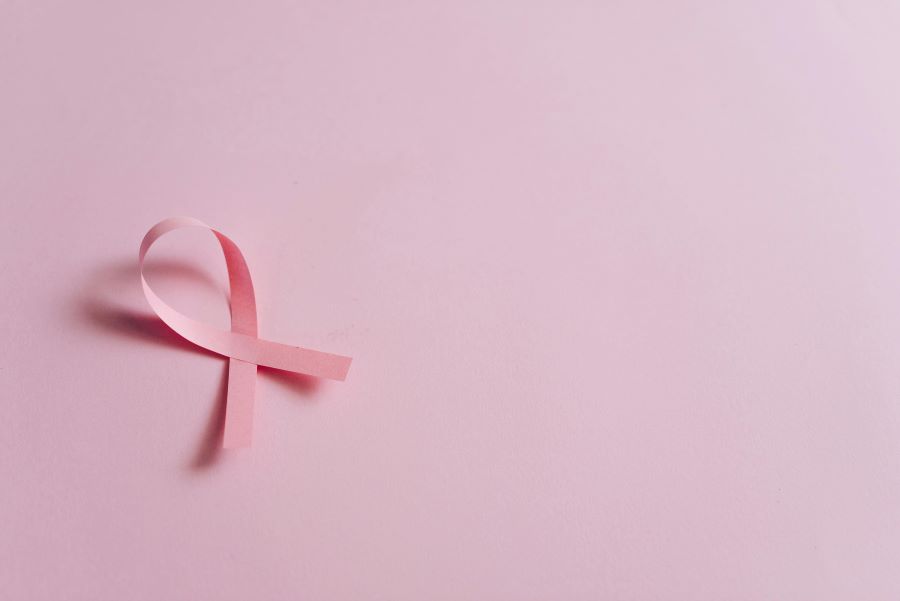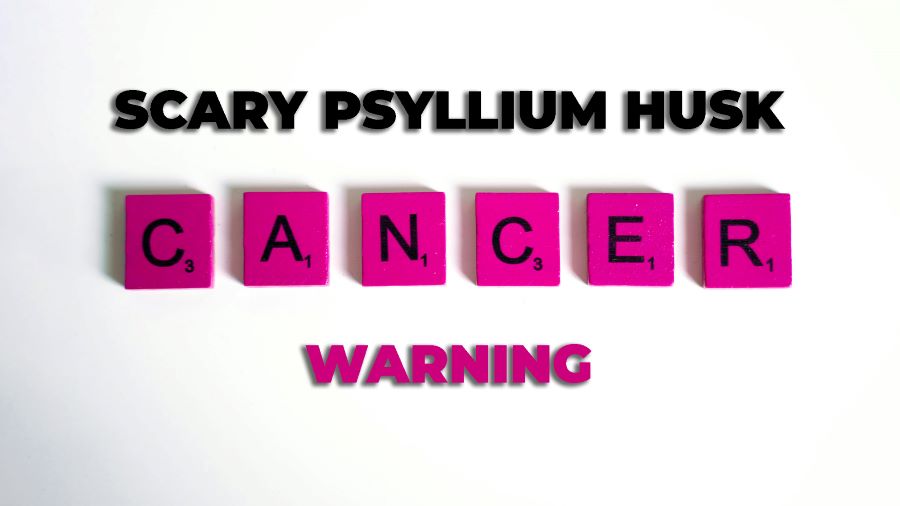When it comes to digestive health, psyllium husk is a go-to for many. It’s natural, effective, and often the first suggestion when someone’s dealing with irregularity or needing extra fiber. But lately, there’s been some concern floating around—especially online—about a “psyllium husk cancer warning.” Some people have spotted caution labels on packaging, others have read threads on Reddit discussing it, and it’s left many wondering: Is it safe? Why does psyllium husk have a Prop 65 warning? Does it cause reproductive harm or contain lead?
Let’s clear things up in simple, honest language. This guide is here to walk through the warning, what it means, and what you should consider before using psyllium husk regularly.
Understanding The Psyllium Husk Cancer Warning: What Does It Really Mean?
When someone sees a cancer warning on a product like psyllium husk, it can feel scary and confusing. This label usually comes from California’s Proposition 65—formally called the Safe Drinking Water and Toxic Enforcement Act of 1986. This law requires businesses to provide a warning if their product contains certain chemicals known to cause cancer, birth defects, or reproductive harm.

In the case of psyllium husk, the warning doesn’t mean the product itself causes cancer. The concern comes from possible traces of lead that might be found in the soil where psyllium is grown or during the manufacturing process. This is why some packaging now includes a “psyllium husk cancer warning P65” label—even when lead levels are extremely low.
This law is very strict. Even a tiny trace of a listed chemical can trigger the need for a warning label. That’s why you’ll sometimes see this warning on items like coffee, potatoes, splenda, and even cigarettes. So, when you spot a “psyllium husk cancer warning on coffee” or a similar label, it’s often about legal compliance more than actual danger.
Some people go online to ask: Why does psyllium husk contain lead? The truth is, lead can naturally appear in the soil, and plants like psyllium absorb it. It’s not added intentionally. Plus, many other foods also contain trace elements of lead—it’s not unique to psyllium.
So, while the label might seem alarming, it’s more of a heads-up than a guarantee of harm.
The Real Reason Behind Prop 65 On Psyllium Husk Products
If you’ve come across “why does psyllium husk have Prop 65 warning” online, especially on sites like Reddit, you’re not alone. It’s a common search because the language on the label can feel unclear. Here’s what’s really going on.
Proposition 65 doesn’t test the overall safety of the product—it focuses only on whether any ingredient, even in very small amounts, meets its risk threshold. In psyllium’s case, this could relate to:
-
Lead (from soil or machinery used in processing)
-
Silica dust (which can be released in manufacturing)
Because California’s guidelines are stricter than federal ones, many products sold nationwide carry the label just to cover legal ground—even if they’d pass safety standards elsewhere.
Some brands offer psyllium husk without cancer warning by sourcing their product more carefully or filtering out specific elements. If this is important to someone, they can look for psyllium husk products that are certified clean or tested for heavy metals.
People who’ve searched for “psyllium husk cancer warning reddit” will often find mixed messages. Some users share concerns, while others report using it for years without any problems. What this shows is the need for informed choice—not fear.
Does Psyllium Husk Cause Reproductive Harm Or Cancer?
Another concern making the rounds is the idea that psyllium husk causes reproductive harm. Again, this concern stems from the Prop 65 list. Some may have heard this and instantly stopped taking their daily fiber—especially if they’re pregnant or planning to become pregnant.

It’s important to know: psyllium husk itself isn’t linked directly to reproductive issues. The risk is associated with the presence of contaminants like lead or silica dust—not the psyllium fiber. If someone is worried, they can choose brands that test and publish their heavy metal content.
In fact, according to the page on psyllium, it’s widely used as a natural remedy for constipation and is generally recognized as safe by the FDA when consumed as directed.
Also worth noting—many foods like cocoa, leafy vegetables, and even baby food can contain trace levels of lead due to natural exposure. This is why it’s not uncommon to see labels like “psyllium husk cancer warning on splenda” or similar on seemingly unrelated products.
So, does psyllium husk cause cancer? No strong evidence says so. The cancer warning is based on potential contamination, not the ingredient itself.
How To Choose A Safe Psyllium Husk Product
For those who rely on psyllium husk to support digestion or manage cholesterol, giving it up because of a label can feel frustrating. Thankfully, there are ways to continue using it with more peace of mind.
Here are a few tips:
-
Choose reputable brands. Look for ones that publish third-party lab tests. This can show levels of lead, cadmium, and other possible contaminants.
-
Buy organic when possible. Organic psyllium may have lower contaminant exposure because of stricter farming practices.
-
Look for “psyllium husk without cancer warning.” Some companies specifically source and test their product to avoid Prop 65 labels.
-
Read the full label. A Prop 65 warning doesn’t mean the product is unsafe—it just means the company is being legally cautious.
People sometimes compare the cancer warnings on psyllium to those seen on cigarettes or even potatoes—but the risk levels aren’t the same. The law just requires labeling across the board.
If someone’s especially sensitive or has a health condition, it’s always wise to speak to a healthcare provider. They can help weigh the benefit of fiber intake against the minimal exposure risk.
Common Concerns From The Psyllium Husk Community
Online forums like Reddit often spark questions. A few posts have gone viral, warning others about the psyllium husk cancer warning issued on certain brands. Here’s what most people are asking and what that means:
-
Is there lead in all psyllium husk products? Not necessarily. Some batches may contain trace levels depending on soil and manufacturing.
-
Can I avoid it? Yes. Several brands test their psyllium for heavy metals and market it as psyllium husk without cancer warning.
-
Is this the same as the warning on Splenda or coffee? Pretty much. It’s about Prop 65 compliance, not necessarily a serious health risk.
At the end of the day, the psyllium husk cancer warning is more of a legal checkbox than a health emergency. For most people, the benefits of regular fiber intake far outweigh these concerns—especially if they choose their brand wisely.

FAQ’s
1. Why does psyllium husk have a Prop 65 warning?
The Prop 65 warning is due to trace levels of lead or silica dust, which may be present in the product due to soil or manufacturing practices. It doesn’t mean the psyllium itself is harmful.
2. Does psyllium husk cause cancer?
There’s no solid evidence that psyllium husk causes cancer. The warning is related to trace contaminants, not the fiber itself.
3. Are there psyllium husk products without a cancer warning?
Yes, some brands take extra steps to test for heavy metals and avoid Prop 65 labeling. These are often organic or third-party certified.
4. What is the safest way to use psyllium husk?
Stick with trusted brands, follow dosage instructions, and speak with a healthcare provider if you have any health conditions.
5. Is the risk the same as with cigarettes or Splenda?
No. While the warning label might look the same, the actual exposure risk is very different. It’s about California law—not a comparison of danger.
Final Thoughts: Making Informed Decisions About Psyllium Husk
For those who rely on psyllium husk for regularity, heart health, or even weight management, the idea of a cancer warning can be unsettling. It’s easy to panic when a package suddenly features words like reproductive harm or cancer warning—especially if it’s placed near other warnings like psyllium husk cancer warning on cigarettes or psyllium husk cancer warning coffee.
The truth is simpler: psyllium husk itself is not the problem. It’s about trace elements and California law being extremely cautious. For most people, continuing to use psyllium responsibly is completely safe. Choosing brands that offer psyllium husk without cancer warning or provide clear safety testing can bring added comfort.
And while Reddit might spark fear, it can also offer community support and share brand recommendations. What matters most is making an informed choice—one that feels right for each individual’s health and comfort.

